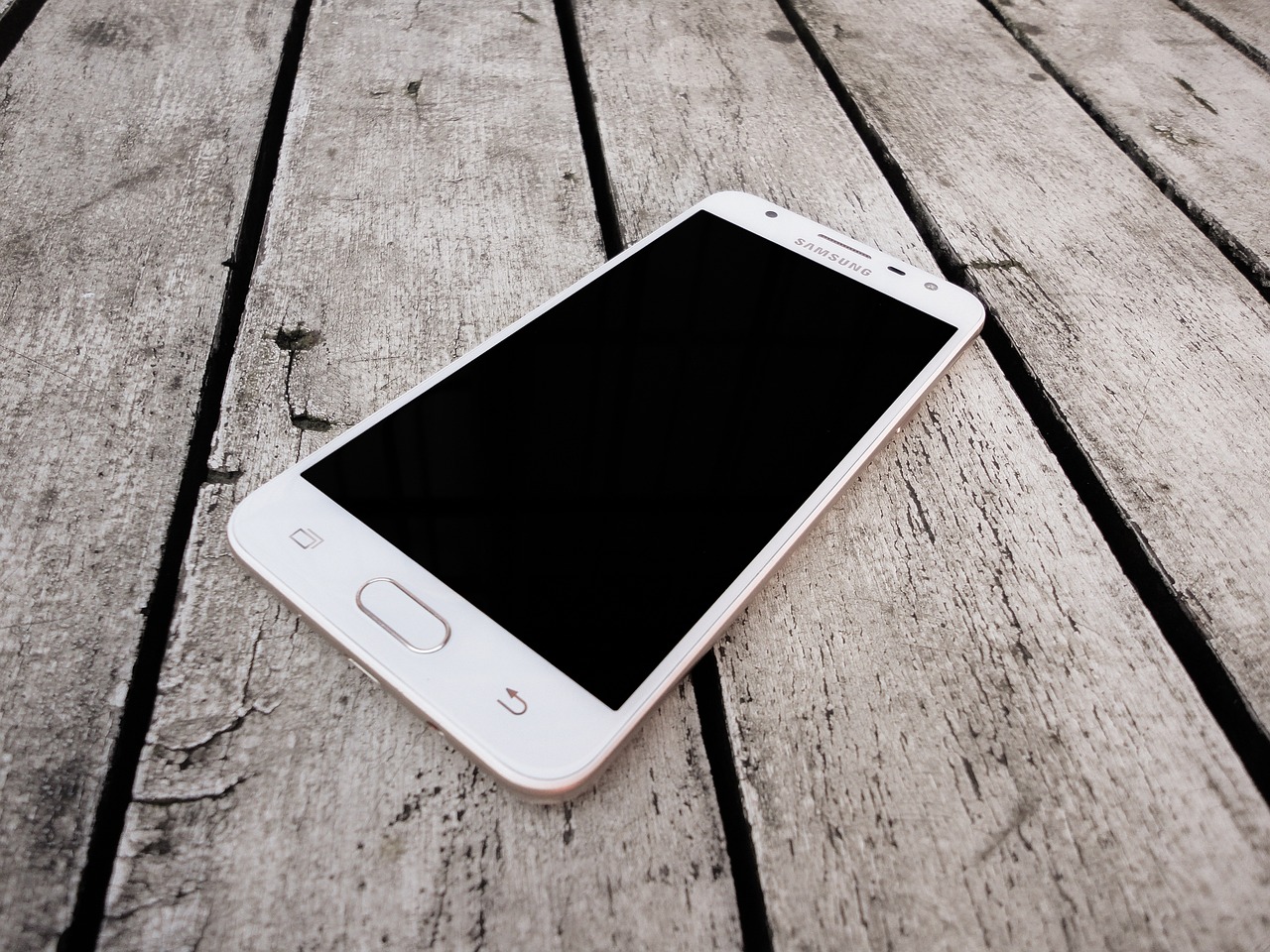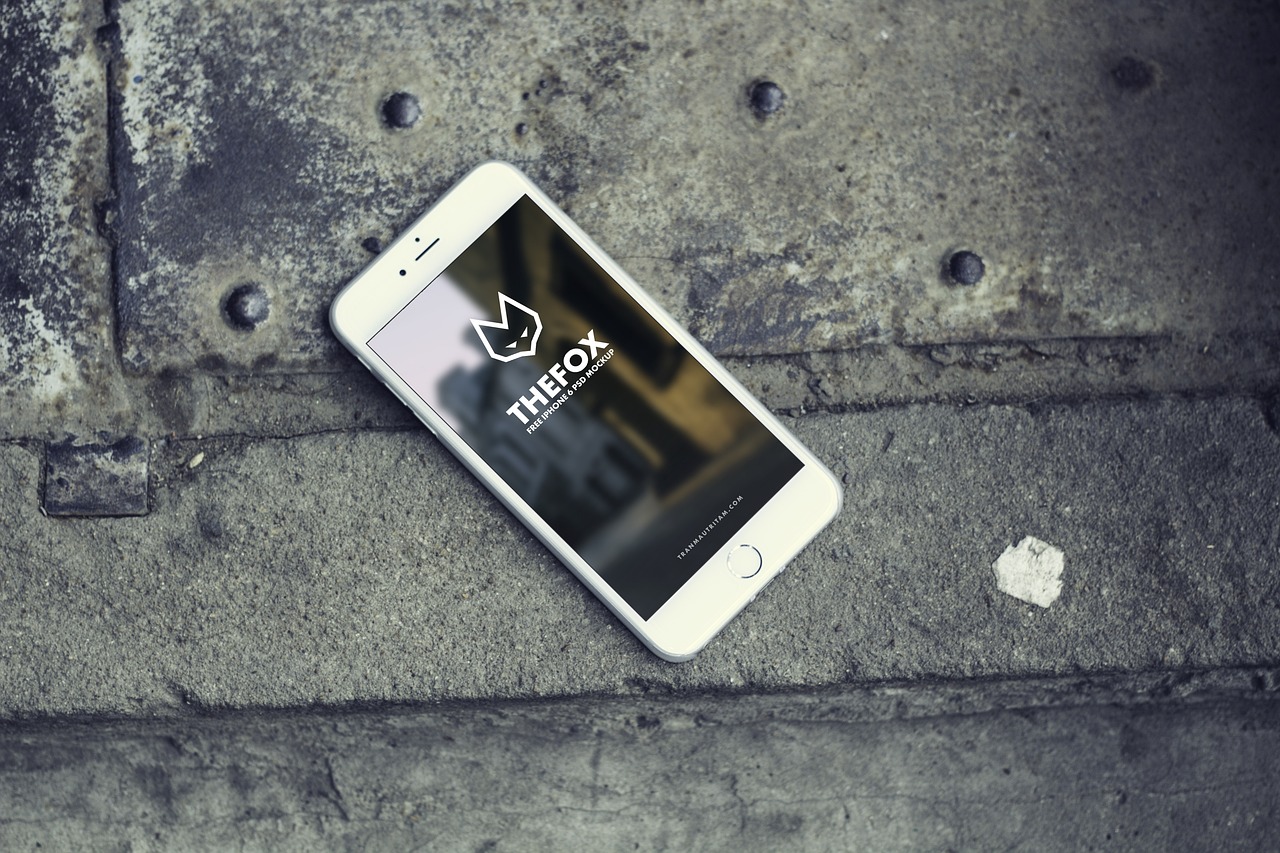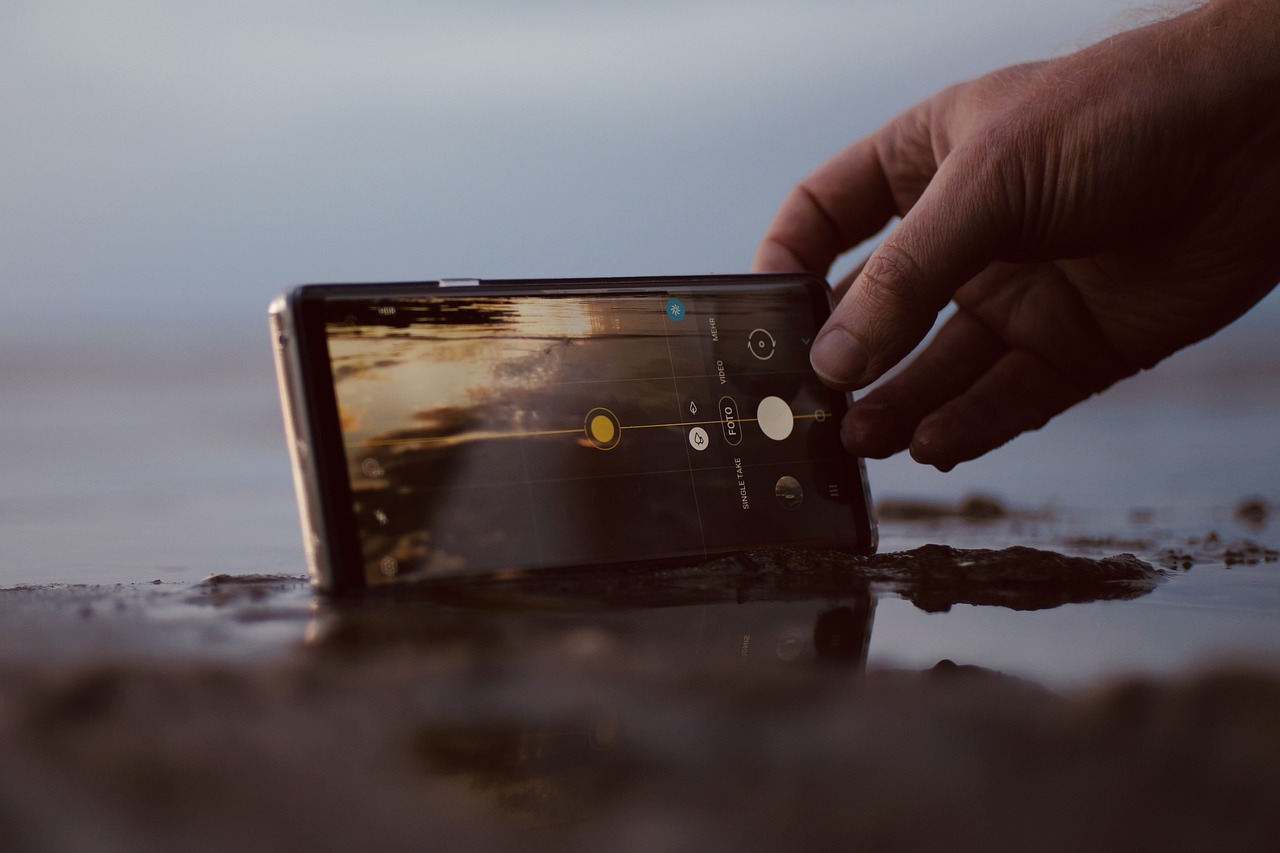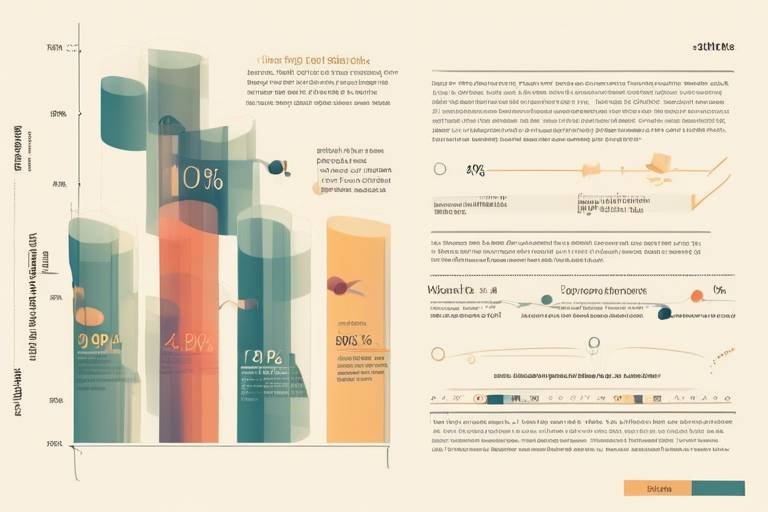How to Utilize Mobile Technology in Health Research
In today's fast-paced world, the integration of mobile technology into health research has become not just beneficial but essential. Imagine being able to collect vast amounts of health data from participants without the traditional hurdles of time and location constraints. This is the promise that mobile technology holds for researchers and healthcare professionals alike. By leveraging mobile devices, researchers can enhance their methodologies, improve patient engagement, and ultimately drive better health outcomes. But how do we effectively harness this technology? Let's dive deeper.
Mobile technology plays a crucial role in health research by facilitating data collection, enhancing communication, and improving patient engagement. With a smartphone in nearly everyone's pocket, researchers can tap into a vast pool of potential participants. This accessibility leads to more diverse data and, consequently, more comprehensive research outcomes. Think of mobile technology as a bridge connecting researchers with participants, making communication smoother and more efficient.
Mobile health applications offer numerous benefits that can significantly enhance research quality and participant engagement. One of the standout features is real-time data collection. Unlike traditional methods that may rely on periodic surveys or in-person visits, mobile apps can gather data continuously. This allows researchers to monitor health trends as they happen, providing a dynamic view of participant health. Additionally, mobile apps improve patient monitoring by enabling users to track symptoms, medication adherence, and lifestyle choices right from their devices.
When it comes to data collection and management, mobile technology streamlines processes in ways we've never seen before. Imagine collecting data from hundreds or even thousands of participants without drowning in paperwork. Mobile applications can automate data entry, reducing human error and ensuring that the data collected is both accurate and reliable. This efficiency is crucial, especially when dealing with large-scale studies where every data point matters.
Utilizing mobile technology allows for real-time data analytics. This means researchers can gain immediate insights into their data, enabling timely decision-making. For instance, if a sudden spike in a health issue is detected, researchers can quickly adjust their study parameters, perhaps by reaching out to participants for more information or modifying the study's focus. This agility is a game-changer in health research, allowing for responses that are as dynamic as the data being collected.
Engaging participants is another area where mobile technology shines. Strategies such as push notifications, reminders, and interactive features can enhance user experience and increase retention rates in health research studies. For example, a well-timed notification reminding a participant to take their medication or complete a survey can significantly boost compliance and involvement. The goal is to create a relationship where participants feel valued and informed about their contributions to the research.
Despite its advantages, implementing mobile technology in health research is not without challenges. Issues such as data privacy concerns, technological barriers, and varying levels of participant digital literacy can hinder progress. Researchers must navigate these obstacles carefully to ensure that their studies are both effective and ethical.
Data privacy and security are paramount in health research. As researchers, it is essential to implement robust measures to protect sensitive information collected through mobile applications. This may include encryption, secure servers, and regular audits of data handling practices. After all, participants must feel confident that their information is safe and used responsibly.
Another critical aspect is ensuring compliance with regulations such as HIPAA and GDPR. Researchers must be well-versed in these laws to safeguard participant data while maintaining the integrity of the research process. It's not just about following the rules; it's about building a culture of trust and transparency with participants.
Establishing trust with participants is crucial for successful mobile health research. Being transparent about data usage and security measures can significantly enhance participant willingness to engage with mobile applications. When participants know how their data will be used and feel secure in that knowledge, they are more likely to participate actively and provide accurate information.
The future of mobile health research is promising, with emerging technologies such as AI and wearable devices set to revolutionize data collection, analysis, and patient care. These innovations pave the way for new research methodologies that can adapt to the ever-changing landscape of health needs. As we look ahead, the integration of these technologies will undoubtedly enhance the quality and effectiveness of health research.
- What are mobile health applications? Mobile health applications are software programs designed to support health-related activities, including data collection, patient monitoring, and health education.
- How do mobile applications improve patient engagement? They provide features like reminders, notifications, and interactive tools that keep patients informed and involved in their health management.
- What challenges do researchers face with mobile technology? Challenges include data privacy concerns, technological barriers, and varying levels of digital literacy among participants.
- Why is data privacy important in health research? Protecting participant data is crucial to maintaining trust and ensuring compliance with regulations like HIPAA and GDPR.

The Role of Mobile Technology in Health Research
This article explores the integration of mobile technology in health research, highlighting its benefits, applications, and challenges, while providing insights into best practices for effective utilization.
Mobile technology is transforming the landscape of health research in ways we never imagined. It serves as a bridge connecting researchers, healthcare providers, and patients, facilitating a dynamic flow of information that enhances the overall research process. Imagine having the ability to collect data from thousands of participants in real-time, all from the convenience of their smartphones. This is not just a dream; it’s a reality thanks to mobile technology!
One of the key roles of mobile technology in health research is its ability to streamline data collection. Traditional methods of gathering data can be time-consuming and often prone to errors. However, with mobile applications, researchers can deploy surveys and questionnaires that participants can complete at their own convenience. This not only improves response rates but also ensures that the data collected is more accurate and reliable.
Moreover, mobile technology enhances communication between researchers and participants. Through instant messaging, push notifications, and reminders, researchers can keep participants engaged and informed throughout the study. This constant engagement helps in maintaining participant interest and motivation, which is crucial for the success of any health research project.
Additionally, mobile technology fosters improved patient engagement. Patients can access their health data, receive tailored health information, and even interact with healthcare professionals through mobile platforms. This empowerment of patients leads to better health outcomes and more meaningful contributions to research. For instance, when patients feel more involved in their health journey, they are more likely to provide accurate data and feedback, which is invaluable for researchers.
To illustrate the impact of mobile technology in health research, consider the following table that highlights its main roles:
| Role | Description |
|---|---|
| Data Collection | Streamlines the process, allowing for real-time and accurate data gathering. |
| Communication | Enhances interaction between researchers and participants through instant messaging and notifications. |
| Patient Engagement | Empowers patients by providing access to their health data and facilitating communication with healthcare providers. |
In summary, the role of mobile technology in health research cannot be overstated. It not only improves the efficiency of data collection and communication but also significantly enhances participant engagement. As we continue to embrace these technological advancements, we can expect to see even more innovative approaches to health research that will ultimately lead to better health outcomes for everyone involved.
Mobile health applications offer numerous benefits, including real-time data collection, improved patient monitoring, and enhanced accessibility to health information, which can significantly contribute to research quality and participant engagement.
Mobile technology streamlines data collection processes, enabling researchers to gather large volumes of data efficiently while ensuring accuracy and reliability through automated data management systems.
Utilizing mobile technology allows for real-time data analytics, providing researchers with immediate insights and enabling timely decision-making based on the latest health trends and participant feedback.
Effective participant engagement strategies, such as push notifications and interactive features, can enhance user experience and increase retention rates in health research studies conducted via mobile platforms.
Despite its advantages, implementing mobile technology in health research poses challenges, including data privacy concerns, technological barriers, and varying levels of participant digital literacy.
Data privacy and security are paramount in health research; therefore, it is essential to implement robust measures to protect sensitive information collected through mobile applications.
Researchers must ensure compliance with regulations such as HIPAA and GDPR when utilizing mobile technology, safeguarding participant data while maintaining the integrity of the research process.
Establishing trust with participants is crucial for successful mobile health research; transparency about data usage and security measures can enhance participant willingness to engage with mobile applications.
The future of mobile health research is promising, with emerging technologies such as AI and wearable devices set to revolutionize data collection, analysis, and patient care, paving the way for innovative research methodologies.
- What is mobile health technology? Mobile health technology refers to the use of mobile devices and applications to support health research and improve healthcare delivery.
- How does mobile technology improve data collection? It allows for real-time data gathering, increases accuracy, and enhances participant engagement through convenient access.
- What are the privacy concerns with mobile health applications? Concerns include data security, unauthorized access to personal health information, and compliance with regulations.
- How can researchers build trust with participants? By being transparent about data usage and implementing strong security measures to protect sensitive information.
- What future trends should we look out for in mobile health research? Emerging technologies such as artificial intelligence, machine learning, and wearable devices are set to play a significant role.

Benefits of Mobile Health Applications
In today's fast-paced world, mobile health applications have emerged as a game-changer in the realm of health research. These applications not only bridge the gap between researchers and participants but also pave the way for enhanced health management. Imagine having a personal health assistant right in your pocket—this is what mobile health apps offer! They provide a plethora of benefits that can significantly improve both the quality of research and participant engagement.
One of the standout advantages of mobile health applications is their ability to facilitate real-time data collection. Researchers can gather data on various health metrics instantly, which allows for a more dynamic understanding of participants' health conditions. This immediacy is crucial, especially in studies that rely on timely interventions. For instance, if a participant is monitoring their blood pressure, the app can send alerts when readings are outside the normal range, prompting immediate action from healthcare providers.
Moreover, mobile health applications enhance patient monitoring. With features that allow users to track their symptoms, medications, and vital signs, these apps empower participants to take charge of their health. This not only improves adherence to treatment protocols but also enriches the data collected in research studies. When patients actively engage in their health management, researchers receive more accurate and comprehensive data, leading to better outcomes.
Accessibility is another key benefit of mobile health applications. They break down barriers to healthcare information, making it readily available to users anytime, anywhere. This is especially beneficial for participants in remote areas or those with mobility challenges. By providing a platform for easy access to health resources, researchers can ensure that a diverse group of participants is involved in their studies, which enhances the validity of the research findings.
In addition to these practical benefits, mobile health applications also foster a sense of community among users. Many apps incorporate social features that allow participants to connect with others facing similar health challenges. This social support can be invaluable, motivating users to stay engaged with their health goals and research participation. To illustrate this, consider the following table that outlines some key benefits of mobile health applications:
| Benefit | Description |
|---|---|
| Real-Time Data Collection | Instant data gathering for dynamic health monitoring. |
| Patient Monitoring | Empowers users to track their health metrics actively. |
| Enhanced Accessibility | Provides health information to users anytime, anywhere. |
| Community Building | Encourages user connections and social support. |
Ultimately, the integration of mobile health applications in research not only improves data quality but also enriches the participant experience. By leveraging these tools, researchers can create a more engaging and effective research environment. So, whether you’re a researcher or a participant, embracing mobile health technology can lead to groundbreaking advancements in health research!
- What are mobile health applications?
Mobile health applications are software programs designed to support health management and research through mobile devices. - How do mobile health applications improve data collection?
They allow for real-time data gathering, enabling researchers to receive immediate feedback and insights. - Are mobile health applications secure?
Yes, most reputable applications implement robust security measures to protect user data and ensure privacy compliance. - Can anyone participate in mobile health research?
Participation often depends on the specific study criteria, but mobile health applications help reach a broader audience.

Data Collection and Management
In the realm of health research, data collection and management are pivotal. With the advent of mobile technology, researchers can now gather vast amounts of data with unprecedented efficiency. Imagine being able to collect health metrics from thousands of participants at the touch of a button! This transformation is not just about speed; it’s also about accuracy and reliability. Mobile applications can automate data entry, reducing the likelihood of human error and ensuring that the information gathered is both precise and trustworthy.
Moreover, mobile technology facilitates the integration of various data types, such as surveys, biometric readings, and patient-reported outcomes. This multi-faceted approach to data collection allows researchers to capture a holistic view of participant health. For instance, a mobile app could simultaneously track a participant's physical activity, dietary habits, and mental health status, creating a comprehensive dataset that can lead to more insightful analyses.
Another significant advantage is the ability to collect data in real-time. Traditional methods often involve lengthy processes where data is collected over weeks or months, but mobile technology allows researchers to gather information as it happens. This immediacy enables researchers to identify trends and patterns promptly, leading to quicker interventions and adjustments in study protocols. For example, if a sudden spike in reported symptoms is detected from a group of participants, researchers can act swiftly to investigate and address the issue.
However, managing this wealth of data presents its own challenges. Researchers must implement robust data management systems to ensure that the information collected is organized, secure, and easily accessible. These systems should facilitate:
- Data Storage: Secure storage solutions that comply with health regulations.
- Data Analysis: Tools that allow for efficient data processing and visualization.
- Data Sharing: Mechanisms for sharing findings with stakeholders while protecting participant confidentiality.
In summary, mobile technology is reshaping the landscape of data collection and management in health research. By harnessing its capabilities, researchers can enhance the quality of their studies, improve participant engagement, and ultimately contribute to better health outcomes. The key lies in balancing the benefits of rapid data collection with the necessity of rigorous data management practices to ensure the integrity and security of the research process.
Q1: How does mobile technology improve data accuracy in health research?
A1: Mobile technology minimizes human error by automating data entry and utilizing real-time data collection methods, ensuring that the information gathered is precise and reliable.
Q2: What types of data can be collected using mobile applications?
A2: Researchers can collect a variety of data types, including surveys, biometric readings, and patient-reported outcomes, providing a comprehensive view of participant health.
Q3: What are the challenges associated with managing data from mobile health applications?
A3: Challenges include ensuring data security, compliance with health regulations, and the need for robust data management systems to organize and analyze the collected information effectively.

Real-Time Data Analytics
In the rapidly evolving landscape of health research, has emerged as a game-changer. Imagine being able to tap into a treasure trove of information at your fingertips, instantly transforming raw data into actionable insights. This capability not only enhances the research process but also empowers researchers to make informed decisions swiftly. With mobile technology, researchers can access data as it is collected, allowing them to monitor trends and patterns that might otherwise go unnoticed.
One of the most significant advantages of real-time data analytics is the ability to respond promptly to emerging health trends. For instance, if a sudden spike in symptoms is reported through a mobile health application, researchers can quickly investigate the cause, potentially preventing larger health crises. This immediacy is akin to having a crystal ball that provides a clear view of health dynamics as they unfold.
Furthermore, real-time analytics facilitate enhanced participant feedback. Researchers can gather insights on user experiences and satisfaction levels almost instantaneously. This feedback loop is crucial for refining research methodologies and ensuring that studies remain relevant and engaging. By leveraging mobile technology, researchers can implement features such as in-app surveys or feedback forms that participants can fill out in real time, ensuring their voices are heard.
To illustrate the impact of real-time data analytics, consider the following table that outlines key benefits:
| Benefit | Description |
|---|---|
| Immediate Insights | Access to data as it is collected allows for quick decision-making. |
| Enhanced Monitoring | Ability to track participant health metrics continuously. |
| Adaptive Research | Research methodologies can be adjusted based on real-time findings. |
| Increased Engagement | Participants feel more involved when their feedback is acted upon promptly. |
In summary, the integration of real-time data analytics into health research not only streamlines processes but also enhances the overall quality of research outcomes. It fosters a dynamic environment where researchers can adapt to new information and participant needs, ultimately leading to more effective health interventions. As we continue to embrace mobile technology, the potential for real-time analytics to transform health research is limitless.
- What is real-time data analytics in health research? It refers to the immediate processing and analysis of data as it is collected, allowing researchers to make quick, informed decisions.
- How does mobile technology facilitate real-time data analytics? Mobile technology enables continuous data collection and instant access to insights, enhancing the research process.
- What are some challenges associated with real-time data analytics? Challenges may include data privacy concerns, the need for robust technology infrastructure, and ensuring participant digital literacy.

Participant Engagement Strategies
When it comes to health research, keeping participants engaged is like trying to keep a cat in a bathtub—challenging, but absolutely necessary! Effective participant engagement strategies can make all the difference between a successful study and one that fizzles out. One of the most effective ways to achieve this is through the use of push notifications. Think of them as friendly reminders nudging participants to stay involved. These notifications can alert users about upcoming surveys, important health tips, or even motivational messages to encourage them to stick to their health goals.
Another approach is to incorporate interactive features within mobile applications. Gamification, for instance, can transform mundane tasks into fun challenges. Imagine participants earning points or badges for completing surveys or logging their health metrics. This not only makes the process enjoyable but also fosters a sense of community among participants. When individuals feel they are part of a larger group, they are more likely to stay engaged and committed to the research study.
Furthermore, offering personalized content can significantly boost engagement. By tailoring information and notifications to the individual’s health needs or interests, researchers can create a more relevant experience. For example, if a participant is managing diabetes, sending them specific dietary tips or reminders to check their blood sugar levels can be incredibly beneficial. This personalization makes participants feel valued and understood, which can lead to higher retention rates.
Moreover, regular feedback loops can enhance participant engagement. Providing updates on how their contributions are making a difference not only keeps them informed but also fosters a sense of ownership over the research outcomes. When participants see the impact of their involvement, they are more likely to remain engaged. This can be done through periodic newsletters or in-app messages that highlight key findings or progress of the study.
Ultimately, the key to successful participant engagement lies in creating a seamless and enjoyable user experience. By leveraging technology effectively and incorporating these strategies, researchers can significantly enhance participant retention and ensure that their studies yield robust and meaningful data.
- What are push notifications, and how do they help in participant engagement?
Push notifications are messages sent directly to a participant's device, reminding or alerting them about important events or tasks related to the research. They help keep participants informed and engaged. - How can gamification improve participant retention?
Gamification introduces game-like elements such as points, badges, or leaderboards to make participation more enjoyable, motivating participants to stay involved in the study. - Why is personalized content important in health research?
Personalized content makes the experience more relevant to each participant, increasing their likelihood of engagement and commitment to the research. - What is the significance of feedback loops?
Feedback loops keep participants informed about the impact of their contributions, fostering a sense of ownership and motivating them to stay engaged throughout the research process.

Challenges in Implementing Mobile Technology
Implementing mobile technology in health research is not all sunshine and rainbows. While the potential benefits are immense, there are significant challenges that researchers must navigate to successfully integrate these tools into their studies. One of the primary hurdles is data privacy. With sensitive health information being collected through mobile applications, ensuring the security of this data is crucial. Researchers must implement robust security measures to protect participant data from breaches or unauthorized access.
Another challenge lies in technological barriers. Not all participants may have access to the latest smartphones or stable internet connections, which can limit their ability to engage with mobile health applications effectively. This digital divide can lead to skewed data and potentially exclude valuable demographic groups from research. Moreover, researchers need to consider the varying levels of digital literacy among participants. Some individuals may find mobile applications intimidating or difficult to navigate, which can result in lower engagement and retention rates.
To illustrate these challenges, consider a recent study that aimed to utilize a mobile app for tracking diabetes management. While the app was designed to be user-friendly, over 30% of participants reported difficulties in navigating the interface, leading to incomplete data submissions. Additionally, concerns about how their data would be used and shared made many potential participants hesitant to join the study. This highlights the importance of addressing both technological and psychological barriers to ensure successful implementation.
Furthermore, researchers must also contend with regulatory compliance. Laws such as HIPAA in the United States and GDPR in Europe impose strict guidelines on how health data can be collected, stored, and shared. Navigating these regulations can be complex and time-consuming, requiring researchers to invest significant resources into understanding and adhering to legal requirements. Failure to comply can not only jeopardize the research but also result in legal repercussions.
In summary, while mobile technology holds great promise for enhancing health research, the journey to successful implementation is fraught with challenges. Addressing issues related to data privacy, technological barriers, participant engagement, and regulatory compliance is essential for researchers looking to harness the full potential of mobile health applications. By understanding these challenges and proactively developing strategies to overcome them, researchers can pave the way for more effective and inclusive health studies.
- What are the main challenges of using mobile technology in health research?
The main challenges include data privacy concerns, technological barriers, varying levels of digital literacy among participants, and compliance with regulations like HIPAA and GDPR.
- How can researchers ensure data privacy when using mobile applications?
Researchers can implement robust security measures, such as encryption and secure data storage, and clearly communicate data usage policies to participants.
- What strategies can enhance participant engagement in mobile health studies?
Utilizing push notifications, interactive features, and providing user-friendly interfaces can significantly improve participant engagement and retention rates.
- Why is digital literacy important in mobile health research?
Digital literacy affects participants' ability to effectively use mobile applications, impacting data collection and the overall success of the research.

Ensuring Data Privacy and Security
In the realm of health research, data privacy and security are not just buzzwords; they are the bedrock upon which trust is built. As researchers embrace mobile technology, the responsibility to protect sensitive participant information becomes increasingly paramount. Imagine sharing your health data through a mobile app; you would want to know that your information is safe from prying eyes, right? Thus, implementing robust measures to safeguard this data is not only ethical but essential.
One of the first steps in ensuring data privacy is to establish a comprehensive understanding of the regulations that govern health data. Compliance with laws such as HIPAA (Health Insurance Portability and Accountability Act) in the United States and GDPR (General Data Protection Regulation) in Europe is crucial. These regulations set stringent standards for data protection, requiring researchers to adopt practices that ensure the confidentiality and security of participant information. For instance, data encryption, secure servers, and regular audits can help mitigate risks associated with data breaches.
Moreover, building trust with participants is vital. When individuals are assured that their data will be handled responsibly, they are more likely to engage actively in research studies. Researchers can foster this trust by being transparent about how data will be used and what security measures are in place. For example, clear communication about data anonymization processes can reassure participants that their identities are protected. Transparency is key; it’s like a safety net that allows participants to feel secure while sharing their information.
To illustrate the importance of data privacy, consider the following table that highlights common data security measures:
| Data Security Measure | Description |
|---|---|
| Data Encryption | Converts data into a code to prevent unauthorized access. |
| Secure Servers | Utilizes protected server environments to store sensitive data. |
| Regular Audits | Conducts periodic checks to ensure compliance with security policies. |
| Access Controls | Limits data access to authorized personnel only. |
In addition to these measures, researchers should also consider the varying levels of digital literacy among participants. Not everyone is tech-savvy, and some may feel overwhelmed by the technology used in mobile health applications. Therefore, providing educational resources can empower participants to better understand how their data is protected. Offering tutorials or FAQs about data security can demystify the process and enhance participant confidence.
Ultimately, the integration of mobile technology in health research offers incredible opportunities, but it also comes with a significant responsibility to protect participant data. By prioritizing data privacy and security, researchers can not only comply with regulations but also cultivate a trusting relationship with participants, leading to more successful and impactful health studies.
- What are the main regulations governing health data privacy?
The main regulations include HIPAA in the U.S. and GDPR in Europe, which outline how health data should be collected, stored, and used.
- How can researchers ensure data security?
Researchers can ensure data security through encryption, secure servers, regular audits, and implementing access controls.
- Why is transparency important in mobile health research?
Transparency helps build trust with participants, ensuring they feel safe sharing their personal health information.

Compliance with Regulations
When diving into the world of mobile health research, one cannot overlook the importance of . It's like navigating through a dense forest; without a proper map, you risk getting lost. In this case, the map is made up of laws and guidelines designed to protect both researchers and participants. Regulations such as the Health Insurance Portability and Accountability Act (HIPAA) in the United States and the General Data Protection Regulation (GDPR) in Europe are crucial for ensuring that sensitive health information is handled with the utmost care.
Understanding these regulations is not just a legal obligation; it's a fundamental aspect of building trust with participants. Imagine you’re sharing your personal health information through a mobile app. Wouldn’t you want to know that your data is safe and secure? That's where compliance comes in. Researchers must implement measures that not only comply with these regulations but also reassure participants that their data is protected. This can be achieved through transparent data usage policies and robust security protocols.
To ensure compliance, researchers should focus on several key areas:
- Data Encryption: Utilizing strong encryption techniques helps protect data at rest and in transit, making it difficult for unauthorized users to access sensitive information.
- Access Controls: Implementing strict access controls ensures that only authorized personnel can access personal health information, minimizing the risk of data breaches.
- Regular Audits: Conducting regular audits can help identify potential vulnerabilities in the system and ensure that compliance measures are up-to-date.
Moreover, researchers should also provide clear and concise information to participants about how their data will be used. This transparency not only fosters trust but also empowers participants to make informed decisions about their involvement in research studies. It's essential to communicate how data will be collected, stored, and shared, and to obtain informed consent that aligns with regulatory requirements.
In conclusion, compliance with regulations is not merely a checkbox to tick off; it’s a vital part of conducting ethical and responsible mobile health research. By adhering to these guidelines, researchers can safeguard participant data, enhance trust, and ultimately contribute to the advancement of health research in a secure manner.
- What is HIPAA? HIPAA is a U.S. law that provides data privacy and security provisions for safeguarding medical information.
- What does GDPR stand for? GDPR stands for General Data Protection Regulation, a regulation in EU law on data protection and privacy.
- Why is compliance important in health research? Compliance is crucial to protect participant data, build trust, and ensure ethical research practices.
- How can researchers ensure data security? Researchers can ensure data security through encryption, access controls, and regular audits.

Building Trust with Participants
Building trust with participants in mobile health research is not just a nice-to-have; it's a critical component for the success of any study. Imagine embarking on a journey without a map—trust is that map guiding participants through the complex landscape of health research. When participants trust the research process, they're more likely to share their data, provide honest feedback, and remain engaged throughout the study.
One of the most effective ways to foster this trust is through transparency. Participants need to know what their data will be used for, how it will be protected, and who will have access to it. Clear communication about these aspects can alleviate fears and misconceptions. For instance, researchers can provide detailed information about data handling practices during the consent process. This could include:
- How data will be collected and stored
- Who will have access to the data
- What measures are in place to ensure data security
- How participants can withdraw their consent at any time
Moreover, utilizing user-friendly mobile applications can enhance the participant experience. If the app is intuitive and engaging, participants are more likely to feel comfortable using it. Think of it like inviting someone into your home; if the environment is welcoming and easy to navigate, they’ll feel more at ease. Incorporating features such as real-time feedback and support channels can also make participants feel valued and heard.
Another essential element is the establishment of a strong support system. Researchers should be readily available to address any concerns or questions participants may have. This could be achieved through:
- Dedicated support hotlines
- In-app messaging features
- Regular check-ins via email or notifications
When participants feel supported, their trust in the research process deepens. It's like having a safety net; knowing that help is just a click away can make a world of difference. Furthermore, sharing success stories and testimonials from previous participants can serve as powerful motivators, showcasing the positive impact of their contributions.
In summary, building trust with participants in mobile health research is an ongoing process that requires transparency, accessibility, and support. By prioritizing these elements, researchers can create a collaborative environment where participants feel secure and valued, ultimately leading to more successful research outcomes.
- Why is trust important in mobile health research?
Trust is essential because it encourages participants to share their data honestly and remain engaged throughout the study, leading to more reliable results. - How can researchers ensure data privacy?
Researchers can ensure data privacy by implementing robust security measures, complying with regulations, and being transparent about data usage. - What role does communication play in building trust?
Effective communication helps clarify any uncertainties participants may have, making them feel more comfortable and secure in their involvement. - How can mobile apps enhance participant engagement?
Mobile apps can enhance engagement by being user-friendly, providing real-time feedback, and offering interactive features that maintain participant interest.

Future Trends in Mobile Health Research
The landscape of mobile health research is continuously evolving, and the future holds remarkable potential that can transform how we approach healthcare. As technology advances, we are witnessing a surge in innovative solutions that promise to enhance data collection, improve patient care, and streamline research methodologies. One of the most exciting trends is the integration of Artificial Intelligence (AI) into mobile health applications. AI can analyze vast amounts of data quickly, providing researchers with insights that were previously unattainable. Imagine having a virtual assistant that can sift through patient data, identify trends, and even suggest interventions in real time—this is not just a dream; it’s becoming a reality.
Another promising trend is the rising popularity of wearable devices. These gadgets, ranging from fitness trackers to smartwatches, are becoming more sophisticated and can monitor a variety of health metrics, such as heart rate, sleep patterns, and physical activity levels. By integrating these devices with mobile health applications, researchers can collect continuous data from participants, leading to more comprehensive insights into health behaviors and outcomes. This continuous monitoring creates a more dynamic understanding of health trends, allowing researchers to adapt their studies based on real-time data.
Furthermore, the advent of telehealth services is reshaping patient engagement. Mobile platforms enable healthcare providers to connect with patients remotely, which is especially beneficial for those in rural or underserved areas. This accessibility not only facilitates participation in health research but also promotes a more inclusive approach to healthcare. Imagine being able to consult with a specialist from the comfort of your home—this convenience can encourage more individuals to engage in health studies, thereby enriching the research pool.
To illustrate the potential impact of these trends, consider the following table that summarizes key future trends in mobile health research:
| Trend | Description | Impact on Research |
|---|---|---|
| Artificial Intelligence | Integration of AI for data analysis and decision-making. | Enhanced insights and quicker responses to health trends. |
| Wearable Devices | Use of gadgets to continuously monitor health metrics. | Real-time data collection leading to comprehensive health insights. |
| Telehealth Services | Remote consultations and monitoring via mobile platforms. | Increased participant engagement and accessibility in research. |
Moreover, the incorporation of blockchain technology is gaining traction in mobile health research. This technology can provide a secure and transparent way to manage health data, ensuring that participants' information is protected while allowing researchers to access reliable data without compromising privacy. By leveraging blockchain, researchers can build a more trustworthy environment, which is essential for encouraging participant engagement and maintaining the integrity of the research process.
As we look ahead, it’s clear that the future of mobile health research is not only about technological advancements but also about fostering a more patient-centered approach. This means actively involving participants in the research process, seeking their feedback, and adapting studies to meet their needs. The more engaged participants feel, the more likely they are to contribute valuable data, ultimately leading to better health outcomes.
- What are the main benefits of using mobile technology in health research?
Mobile technology enhances data collection, improves patient engagement, and allows for real-time analytics, leading to more efficient research processes. - How do wearable devices contribute to health research?
Wearable devices provide continuous monitoring of health metrics, allowing researchers to gather comprehensive data on participants’ health behaviors. - What role does AI play in mobile health research?
AI streamlines data analysis and helps researchers gain insights quickly, improving decision-making based on real-time data. - How can researchers ensure data privacy when using mobile technology?
By implementing robust security measures and complying with regulations such as HIPAA and GDPR, researchers can protect sensitive participant information.
Frequently Asked Questions
- What is mobile technology in health research?
Mobile technology in health research refers to the use of mobile devices and applications to collect, manage, and analyze health-related data. This integration enhances communication and patient engagement, leading to more effective research outcomes.
- How do mobile health applications benefit researchers?
Mobile health applications provide numerous benefits, including real-time data collection, improved patient monitoring, and enhanced accessibility to health information. These features significantly contribute to the quality of research and participant engagement.
- What are the challenges of implementing mobile technology in health research?
While mobile technology offers many advantages, challenges include data privacy concerns, technological barriers, and varying levels of digital literacy among participants. Addressing these issues is crucial for successful implementation.
- How can researchers ensure data privacy and security?
Researchers can ensure data privacy and security by implementing robust measures such as encryption, secure data storage, and compliance with regulations like HIPAA and GDPR. This protects sensitive information collected through mobile applications.
- Why is participant trust important in mobile health research?
Building trust with participants is essential for successful mobile health research. Transparency about data usage and security measures enhances participant willingness to engage with mobile applications, ultimately improving research outcomes.
- What future trends can we expect in mobile health research?
The future of mobile health research is exciting, with emerging technologies like AI and wearable devices set to revolutionize data collection and analysis. These innovations will pave the way for new methodologies in health research.


















